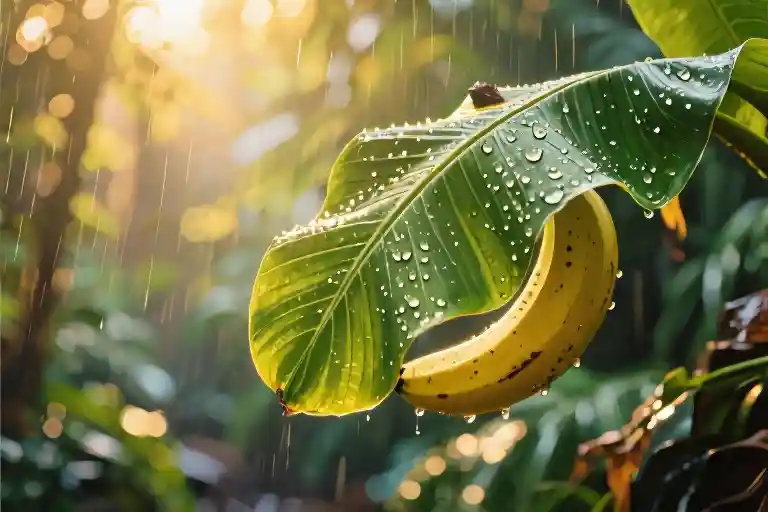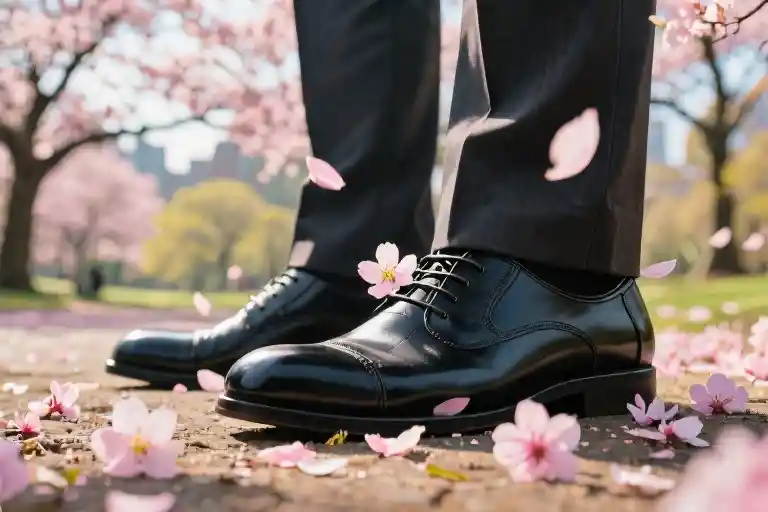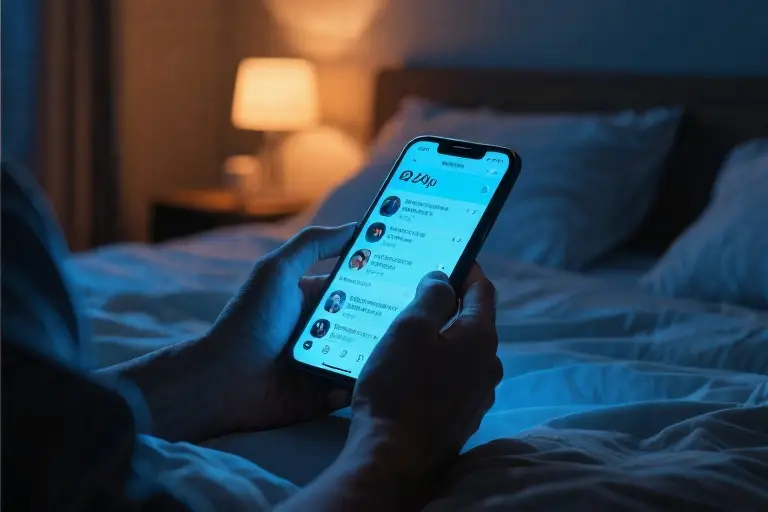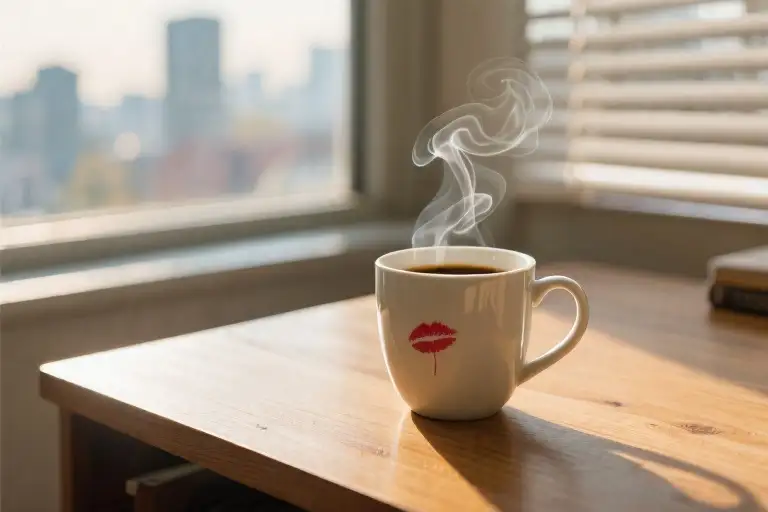The raindrops slide down the broad leaves of the plantain tree outside my window, each one carrying fragments of a life I once knew. At this moment, three years ago, I was kneeling on the floor of my Manhattan apartment, surrounded by designer handbags and unpaid credit card statements, tears mixing with the rain streaking the floor-to-ceiling windows. I had everything society told me to want – the corner office, the luxury car, the Instagram-perfect wardrobe – yet I’d never felt more trapped.
‘I need very little; I want very little.’ This simple mantra became my lifeline during those sleepless nights when the weight of possessions threatened to crush me. The paradox still strikes me: how having ‘everything’ left me feeling emptier than ever, while now, living with what fits in a single backpack, I’ve discovered a richness no store could sell me.
That rainy morning marked my breaking point. Not the dramatic, cinematic kind, but the quiet unraveling of someone who finally admitted the truth – my golden handcuffs were cutting off circulation. The CEO title didn’t stop the panic attacks. The designer shoes couldn’t walk me away from depression. The 800-thread-count sheets became the burial shroud for my authentic self.
Yet here’s what they don’t tell you about minimalism: it’s not about deprivation, but about making space. Space to hear yourself think beneath the noise of advertisements and societal expectations. Space to notice how rainwater collects in the curve of a plantain leaf, nature’s perfect bowl. Space to breathe between heartbeats without the constant thrum of ‘more, more, more.’
This lifestyle isn’t for everyone, but neither is the exhaustion of keeping up appearances. What if ‘having it all’ actually means missing what matters? I learned this the hard way – through breakdowns in bathroom stalls during lunch breaks, through accumulating things to fill voids no object could ever satisfy. Now, when people ask why I left, I show them photos of that rainy morning. Not the curated version, but the real one: puffy eyes, shaky hands, and the first genuine smile I’d worn in years as I booked a one-way ticket to freedom.
The plantain tree outside my window now grows where my desk used to be. Its leaves catch the rain that once fell on my corporate umbrella, and somehow, that feels like poetry.
The Gilded Cage
My walk-in closet once held over 200 designer items – the Chanel flap bag purchased during a panic attack at 2AM, the Rolex that never told time as accurately as it screamed “success”, twelve pairs of identical black heels for corporate meetings where I’d dissociate mid-presentation. The credit card statements piled higher than my unread self-help books, each monthly minimum payment another brick in what I now recognize as the most insidious prison: a transparent glass cell where everyone could admire my captivity.
Psychologists call this the golden handcuff syndrome. A Harvard study revealed that 28% of high-earning professionals experience chronic emptiness despite material abundance – we’re the modern equivalents of kings wearing lead crowns beneath our gilded exteriors. My breaking point came when I realized I could recite the security codes for all my storage units but couldn’t remember the last time I’d felt genuine joy.
The paradox of privileged suffering is its invisibility. Society celebrates the symptoms of our distress – the dark circles from 80-hour workweeks become badges of honor, the luxury goods purchased to fill emotional voids transform into status symbols. We become trapped in what psychologist Erich Fromm termed “the marketing character” – human beings valuing ourselves by our exchange value rather than our existence value.
Three artifacts epitomized my imprisonment:
- The Platinum Card: Its weight in my wallet mirrored the sinking feeling each time I swiped it
- The Corporate Apartment: 800 square feet of curated emptiness overlooking a city I never explored
- The Performance Review Binder: 47 pages quantifying my worth while my soul atrophied
Research from the Journal of Positive Psychology confirms what my body knew before my mind admitted it: material aspirations activate the same neural pathways as physical pain. Our biology rebels against the very possessions we’ve been conditioned to crave. The luxury watch pressing against my pulse point became not just a timepiece but a countdown to existential collapse.
This wasn’t living – it was a high-production-value puppet show where I played both marionette and puppeteer. The tragedy? Most spectators envied the strings.
The Courage to Rewrite Your Script
Three days. That’s all it took to dismantle a life I’d spent decades building. The Louis Vuitton trunk that once held winter scarves now contained my entire existence. As I taped the final box shut, my hands trembled not from exhaustion, but from something more primal – the terrifying thrill of standing at life’s edge, ready to jump into the unknown.
The Great Unburdening
The first morning, I attacked my walk-in closet with the precision of a surgeon. Fingers brushed against silk blouses still bearing price tags, each untouched garment whispering accusations of wasted potential. My “sell pile” grew faster than expected – designer handbags, limited-edition watches, shoes worn exactly once to impress people whose names I’d already forgotten.
Then came the resistance. My mother’s voice crackled through the phone: “You’re throwing away your security!” Friends hovered like nervous birds, offering storage spaces and half-hearted “breaks from reality.” The hardest moment? Folding my grandmother’s quilt into a stranger’s car. For three heartbeats, I almost took it back – until I remembered how it had spent years suffocating in acid-free tissue, preserved for a “special occasion” that never came.
The Ticket That Changed Everything
The airline website glowed ominously in my dark apartment. One-way flights to Costa Rica scrolled past as my cursor hovered over the purchase button. My throat tightened when the payment screen appeared – not at the price, but at the finality. This wasn’t a vacation; it was a controlled demolition of every safety net I’d known.
Funny how paper can weigh so much. When that boarding pass printed, my entire body shook like a tuning fork struck against the universe. The vibration traveled from my fingertips to some long-dormant place behind my ribs, awakening a sensation I barely recognized: possibility.
What Would You Keep?
Here’s what stayed in my 28-liter backpack:
- 1 pair of hiking pants that convert to shorts
- 3 quick-dry shirts
- A notebook filled with sketches of plants I’d never taken time to identify
- My grandfather’s pocket knife (the one concession to sentimentality)
Everything else – the curated bookshelves, the vintage typewriter collection, the signed first editions – dissolved into cash that would later buy four acres of wild land. I often wonder: if you had to distill your life into a single bag, what object would surprise you by making the cut? That answer tells you more than any therapist ever could.
The Aftertaste of Freedom
Let me be honest – liberation stings like salt in a fresh wound. There were nights I woke gasping, convinced I’d made a catastrophic mistake. But with each sunrise came quieter realizations: how my shoulders didn’t hunch without invisible weights, how colors seemed brighter when not viewed through the filter of “what this costs.”
The true revelation? Minimalism isn’t about loss. It’s about creating space for your hands to finally catch what matters – whether that’s tropical rain on your face or the perfect ripe plantain waiting at the bottom of your new world.
Under the Banana Leaves: The Answers I Found
The morning rain had just stopped when I walked down to the edge of my property, bare feet sinking slightly into the damp earth. Somewhere beneath these towering banana leaves lay my breakfast – if I could find it. This simple act of foraging, this quiet communion with the land I now call home, became my daily meditation. It’s a far cry from the life I once knew, and yet, it’s everything I need.
The Currency of Freedom
I bought this small plot of land with cash – actual paper bills stacked neatly in an envelope. The realtor’s eyebrows nearly disappeared into his hairline when I produced it. In my previous life, such a transaction would have involved credit checks, mortgage approvals, and endless paperwork. Now? Just an honest exchange: my savings for this patch of earth where banana trees grow wild.
This cash transaction became more than just a purchase; it was my declaration of independence from the systems that once bound me. No debt. No strings. No hidden clauses in the fine print. Just a simple exchange between two people, sealed with a handshake and the scent of rain on red soil.
My Two Lists
In my old apartment (the one with the designer furniture and the view that cost extra), I kept an annual “Wish List” – pages of items I convinced myself would complete me. The latest smartphone. That limited-edition handbag. Membership to an exclusive club. Each acquisition brought a fleeting thrill, then gathered dust while I scrambled for the next fix.
Now I keep a different list. Not of wants, but of moments when I catch myself feeling utterly content:
- Watching sunlight filter through banana leaves after the rain
- The weight of a ripe mango freshly picked from my tree
- Afternoons spent reading in the hammock without glancing at a clock
- The profound quiet that comes when you realize no bills are due
This “Enough List” grows daily, while my old wish lists seem like relics from someone else’s life.
The Anatomy of a Banana Leaf
There’s a particular kind of freedom in being able to study the intricate veins of a banana leaf for as long as you please. In my former life, such simple pleasures were invisible to me, drowned out by the constant noise of more – more work, more stuff, more status.
Now I understand what true wealth looks like. It’s time to notice how water droplets cling to the waxy surface of leaves. It’s the luxury of watching seasons change the same patch of earth. It’s knowing every crease and curve of the land that sustains you.
This simple life isn’t about deprivation – it’s about removing the clutter that prevents us from seeing what was there all along. My banana leaves don’t care about my net worth or my productivity metrics. They simply grow, season after season, offering shade and fruit without expectation. What better teacher could I ask for?
The Arithmetic of Enough
People often ask, “Don’t you miss your old comforts?” They imagine my current life as one of constant sacrifice. But they’ve got the math backwards. I didn’t subtract from my life – I removed the barriers to what actually nourishes me.
Where I once calculated my worth in square footage and salary figures, I now measure it in:
- The number of birds that visit my trees each morning
- How many meals I can prepare from what my land provides
- The hours spent creating rather than consuming
- Nights slept deeply without anxiety’s sharp elbow in my ribs
This is the paradox of simple living: by reducing what I own, I’ve expanded what I experience. The banana leaves outside my window hold more wisdom than any self-help book I ever bought. The rain provides better entertainment than any streaming service. And time – that most precious currency – flows differently when you’re not constantly trading it for things you don’t need.
As I walk back to my small house, a bunch of green bananas heavy in my arms, I realize this: Freedom isn’t found in possessing more, but in needing less. And sometimes, the most profound answers come from learning to read the veins on a banana leaf, rather than the fine print on a contract.
Why I Choose a Life of ‘Not Enough’
“You’re wasting your potential.”
The words still echo sometimes when I’m knee-deep in soil, planting vegetables that’ll feed me for weeks. I used to flinch at such comments – now I smile and wipe my muddy hands on my frayed trousers. This chapter isn’t a defense; it’s an invitation to reconsider what “enough” truly means.
The Dialogue That Never Happened (But Always Does)
The Skeptic: “With your education/experience, you could be making six figures!”
Me: “I was. I had the corner office, the designer suits, and panic attacks before quarterly reviews.”
The Worried Parent: “Don’t you want security? A proper home?”
Me: “My 400-square-foot cabin paid in cash feels more secure than mortgaged McMansions I used to stage for clients.”
The Former Colleague: “It’s such a… simple life.” (Said like “small”)
Me: “Funny – I’ve never felt richer. Yesterday’s excitement? Finding wild blueberries near the creek.”
These conversations aren’t about convincing others. They’re mirrors showing how we’ve all absorbed society’s hidden curriculum: that success must look expansive, expensive, and exhausting.
The Math They Never Taught Us
Consumer culture operates on a simple equation:
More possessions + more achievements = more happiness
After living both sides, my recalculated formula looks different:
Less clutter + fewer obligations = more space for aliveness
This isn’t deprivation – it’s distillation. Like reducing a sauce to its essence, I’ve boiled life down to elements that actually nourish:
- Waking without an alarm to birdsong instead of traffic
- Trading client presentations for identifying edible mushrooms
- Measuring wealth in uninterrupted hours to read under my banana tree
What “Waste” Really Means
Thoreau wrote: “The cost of a thing is the amount of what I will call life which is required to be exchanged for it.” This revelation still stings. For years, I traded:
- 60-hour workweeks for a luxury car I only drove to the office
- Vacation days spent recovering from burnout
- Evenings scrolling shopping sites to numb existential dread
Now, when someone calls my lifestyle “a waste,” I remember: wasting life isn’t about what you don’t accumulate – it’s about missing the present moment while chasing some manufactured future.
The Privilege of Enough
Let’s be clear – choosing simplicity requires certain privileges:
- No dependents relying on my income
- Good health allowing physical work
- The cultural capital to “opt out” without dire consequences
This path isn’t morally superior. But it is consciously chosen, which makes all the difference. My “not enough” might be someone else’s unbearable lack – or their suffocating excess. The point isn’t the quantity; it’s the intentionality.
Your Enough Is Out There
Maybe your version isn’t a cabin in the woods. Perhaps it’s:
- Working four days week to coach Little League
- Downsizing to travel more
- Simply saying “no” to promotions that would devour your soul
Wherever your “plantain at the bottom of the property” waits – that thing symbolizing quiet contentment – I hope you’ll recognize it when you see it. And when critics question your choices, remember:
You don’t owe the world an explanation for choosing breath over busyness.
Finding Your Own Plantain
The rain has stopped now. Sunlight filters through the broad leaves of the plantain tree outside my window, casting dancing shadows on the wooden floor of this small house I bought with cash. There’s a quiet satisfaction in knowing every board was paid for with money earned – and spent – on my own terms.
This ending isn’t really an ending at all. It’s an invitation.
Start Small, Start Anywhere
You don’t need to sell everything tomorrow. You don’t need a one-way ticket to somewhere unknown. Simple living begins with a single conscious choice:
- Delete one shopping app from your phone tonight
- Clear out just one drawer this weekend
- Say “no” to one social obligation that drains you
These small acts create cracks in the walls of expectations. Through them, you’ll begin to see what your version of freedom might look like.
The Question Only You Can Answer
That plantain tree at the edge of my property? It became my compass. Not because there’s anything magical about tropical fruit, but because the act of searching for it represents everything this life gives me:
- Presence (noticing when the fruit is perfectly ripe)
- Patience (waiting through rainy seasons)
- Connection (sharing harvests with neighbors)
Your “plantain” might be:
- The novel you’ve been meaning to write
- The hiking trail you keep postponing
- The morning quiet before emails begin
The Sound of Possibility
Listen closely. That sound you hear – is it just rain dripping from leaves? Or could it be the faint cracking of invisible chains?
When I stepped off that one-way flight years ago, I expected to feel terrified. Instead, I felt lighter than ever, despite carrying everything I owned in a single backpack. The weight wasn’t in the possessions I’d left behind – it was in the “shoulds” I’d stopped carrying.
Your journey won’t look like mine. That’s the point. Simple living isn’t about copying someone else’s rules – it’s about discovering what “enough” means when you’re finally listening to your own voice.
Where To Next?
The path forward is simpler than we’ve been led to believe:
- Pause before your next purchase/commitment: “Is this for me or for them?”
- Protect what already feeds your soul (time, relationships, creativity)
- Practice saying “I have enough” until you believe it
That sunlight through the leaves? It’s waiting to fall across your version of this life too. All you need to do is step out from under what’s been shading you from seeing it.
What will your first small step be today?





